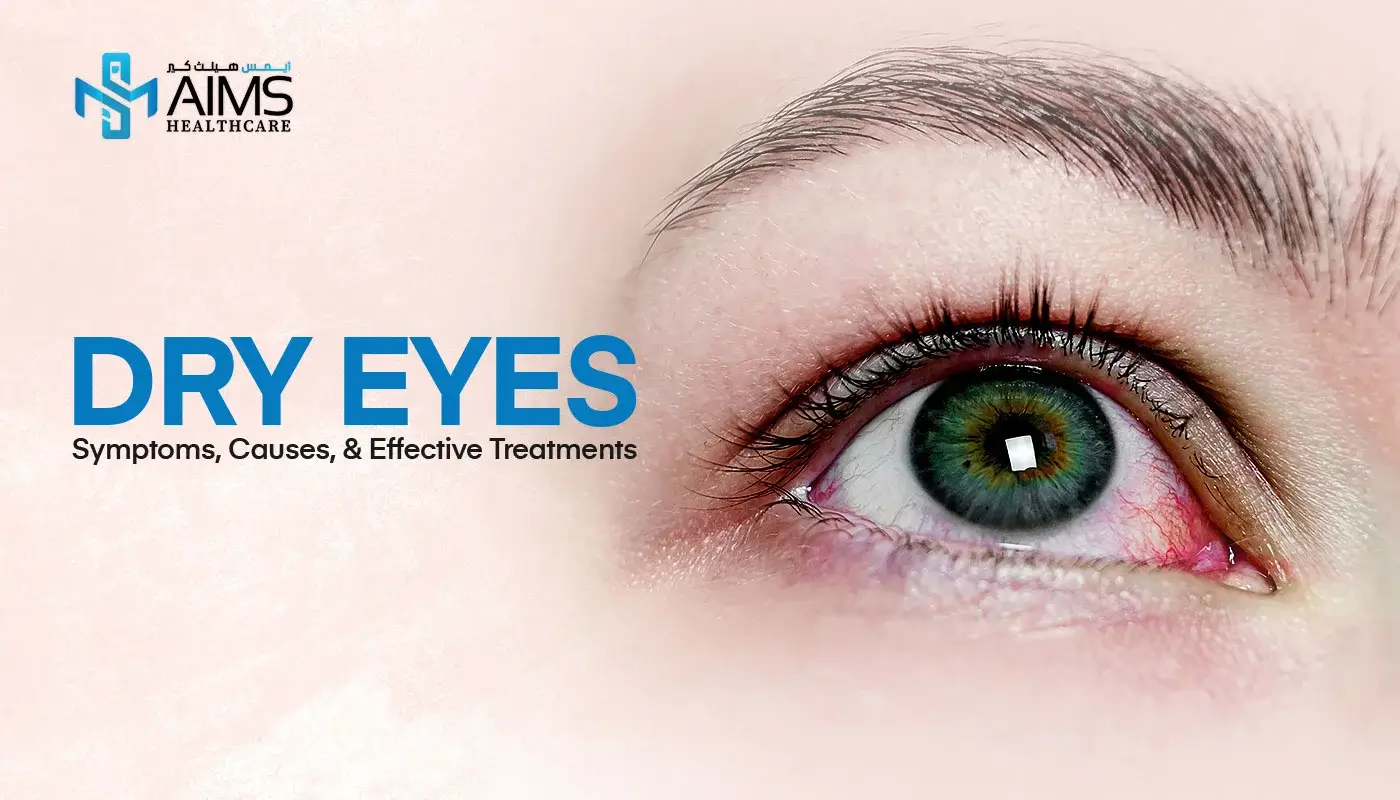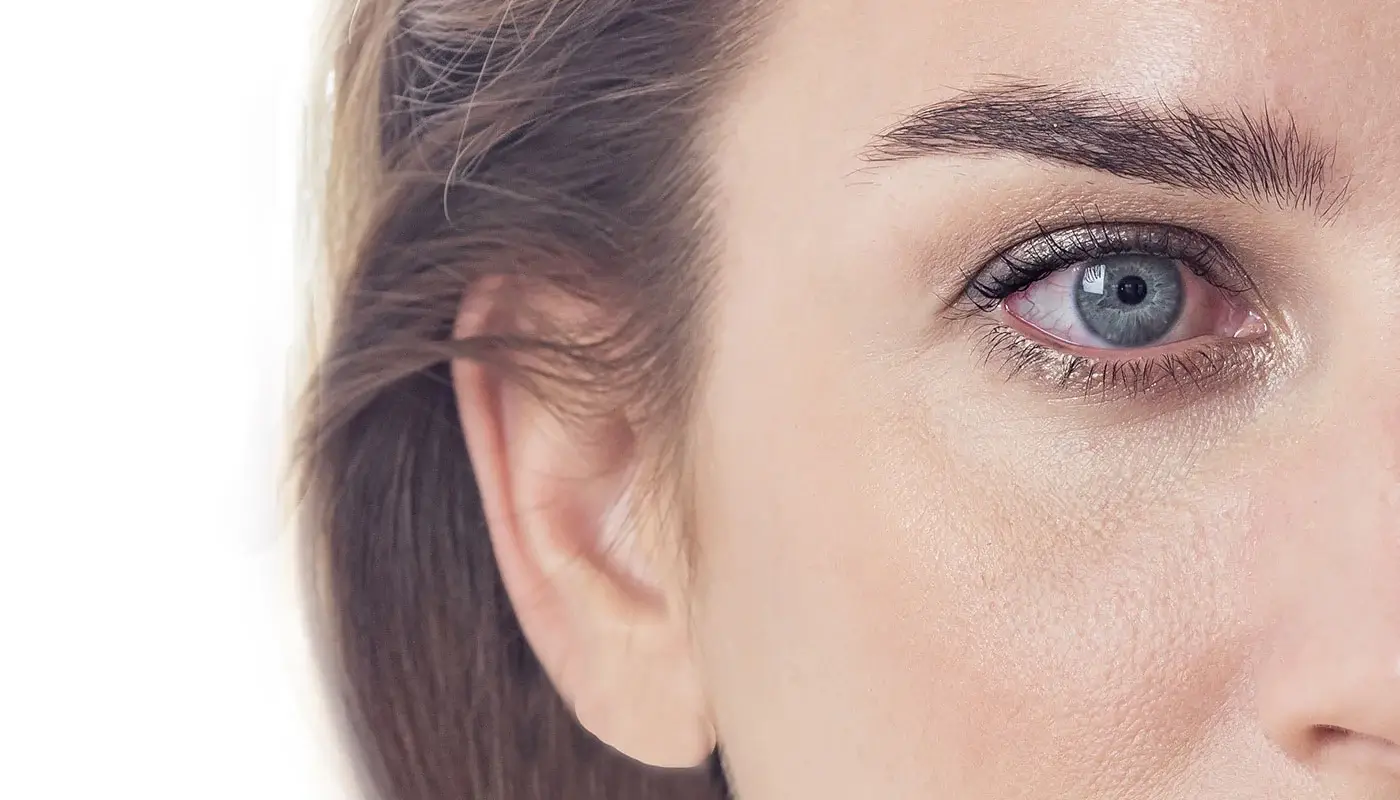
Benefits of NIPT Test for Expecting Mothers
Table of Contents Healthy Fasting, Happy Digestion! Explore Tips for a Smooth Ramadan. As the holy month approaches, fasting holds significant spiritual and cultural importance

Tears lubricate and protect eyes, so it won’t be wrong to say that eyes make tears all day, every day. But when tears aren’t able to provide adequate lubrication for the eyes, you can develop a condition known as dry eyes or dry eye disease (DED), and living in a place like Dubai that has a dry climate can pose unique challenges for eye health, making the management of dry eyes even more crucial. Therefore, it is necessary to recognize the significance of managing dry eyes, which becomes essential for maintaining comfortable and clear vision. By understanding the intricacies of this condition and its correlation with seasonal factors, you can proactively take steps toward better eye health. Whether you’re experiencing discomfort or persistent symptoms, seeking professional advice is paramount, especially in the comfort of your home through convenient “Doctor at Home” services.
In this comprehensive guide, we delve into the symptoms, causes, and effective treatments for dry eyes, offering valuable insights tailored to the distinct environmental conditions of Dubai. Join us as we explore the nuanced connection between lifestyle, environmental conditions, and dry eye symptoms, providing you with the tools to alleviate discomfort and promote long-term eye health in the unique winter atmosphere of Dubai.
Dry eyes present a range of symptoms that can impact your daily life. Recognizing these signs is crucial for timely intervention and relief. Common dry eye symptoms include:

Dry eye syndrome is a chronic condition where your eyes can’t produce enough quality tears to keep them adequately lubricated. This syndrome can be caused by various factors, including environmental conditions, medical issues, and lifestyle choices. Some common causes include:
When it comes to treating dry eyes, a multi-faceted approach is often necessary, addressing both symptoms and underlying causes. The goal is not only to alleviate discomfort but also to enhance tear production and maintain ocular health.
Over-the-counter artificial tear drops are a cornerstone for managing dry eyes. These drops act as a lubricant, providing relief by supplementing natural tears. It’s important to choose preservative-free options for long-term use, as preservatives can exacerbate symptoms in some individuals. Regular use, especially in dry climates like Dubai, can help maintain moisture on the ocular surface, reducing irritation and redness.
In cases where over-the-counter remedies fall short, prescription medications may be recommended. Anti-inflammatory eye drops, such as cyclosporine or lifitegrast, can help reduce inflammation and promote tear production. These medications are particularly useful for individuals with chronic dry eye syndrome and can provide sustained relief with regular use. However, it’s crucial to consult with an eye care professional to determine the most suitable prescription based on the specific needs of the patient.
Simple lifestyle adjustments can significantly impact dry eye symptoms. For instance, creating a more humid environment by using a humidifier can prevent excessive evaporation of tears. Taking regular breaks during prolonged screen time and ensuring proper blinking can also alleviate dry eye symptoms, especially in the era of increased digital device usage.
Natural remedies can complement medical interventions. Warm compresses applied to closed eyes can help unclog oil glands and improve the quality of tears. Staying well-hydrated supports overall eye health, as dehydration can exacerbate dry eye symptoms. Additionally, incorporating omega-3 fatty acids into your diet through sources like fish, flaxseeds, and walnuts may contribute to better tear production and alleviate dryness.
In some cases, more advanced therapies, such as punctal plugs or IPL therapy, are recommended based on the severity.
Understanding that individual responses to treatments may vary, it’s crucial to consult with an eye care professional for a personalised treatment plan. Regular follow-ups allow for adjustments to ensure optimal management of dry eye symptoms.
It’s not uncommon for individuals who have undergone LASIK surgery to experience temporary blurred vision due to dry eyes. The procedure can affect tear production, leading to insufficient lubrication during the initial healing phase. To address this, patients are often advised to use preservative-free artificial tears and follow a prescribed regimen of lubricating eye drops. Ensuring diligent adherence to post-operative care guidelines and attending follow-up appointments with the surgeon is crucial for a successful recovery and minimising the impact of dry eyes on vision clarity.

Identifying the best treatment for dry eyes depends on the underlying cause and severity of the symptoms. Consulting with an eye care professional is essential for personalised advice and care. A comprehensive eye examination can help determine the most suitable course of action, whether it be lifestyle adjustments, over-the-counter remedies, prescription medications, or advanced therapies. The best treatment plan is one that addresses the specific needs of the individual, taking into consideration factors such as overall health, lifestyle, and environmental conditions.
Maintaining a healthy diet is crucial for overall eye health. Foods rich in omega-3 fatty acids, vitamins A and D, and antioxidants can contribute to tear production and alleviate dry eye symptoms. Including fish, flaxseeds, chia seeds, leafy greens, and citrus fruits in your diet can be beneficial. Staying adequately hydrated is equally important, as dehydration can exacerbate dry eye symptoms. While diet alone may not be a standalone treatment for dry eyes, it plays a supportive role in promoting overall ocular health.
In conclusion, managing dry eyes in Dubai’s arid climate is crucial for clear vision. Seek professional advice for persistent symptoms and consider convenient “Doctor at Home” services by AIMS Healthcare. The tailored approach involves artificial tears, prescription medications, lifestyle changes, and sometimes advanced therapies. Understanding the link between lifestyle, environment, and symptoms is key. Proactively integrate these strategies to alleviate discomfort and ensure long-term eye health. Regular check-ups and open communication with your eye care provider are vital for making informed decisions in Dubai’s unique climate.
The common symptoms include itching or burning sensations, redness, blurred vision, sensitivity to light, and dry skin around the eyes.
You can contact AIMS Healthcare for convenient “Doctor at Home” services and professional advice. Healthcare professionals may advise you to use preservative-free artificial tears, incorporate a humidifier, take breaks during screen time, and stay well-hydrated.
Yes, dry eyes post-LASIK surgery can lead to temporary blurred vision.
Punctal plugs and IPL therapy are advanced options to retain natural tears and target inflammation in oil-producing glands. Individual responses may vary, and consultation with an eye care professional is crucial.
A diet rich in omega-3 fatty acids, vitamins A and D, and antioxidants can support tear production and alleviate dry eye symptoms.Get professional’s help for proper diet and water intake solutions.

Table of Contents Healthy Fasting, Happy Digestion! Explore Tips for a Smooth Ramadan. As the holy month approaches, fasting holds significant spiritual and cultural importance

Table of Contents Healthy Fasting, Happy Digestion! Explore Tips for a Smooth Ramadan. As the holy month approaches, fasting holds significant spiritual and cultural importance

Table of Contents Healthy Fasting, Happy Digestion! Explore Tips for a Smooth Ramadan. As the holy month approaches, fasting holds significant spiritual and cultural importance